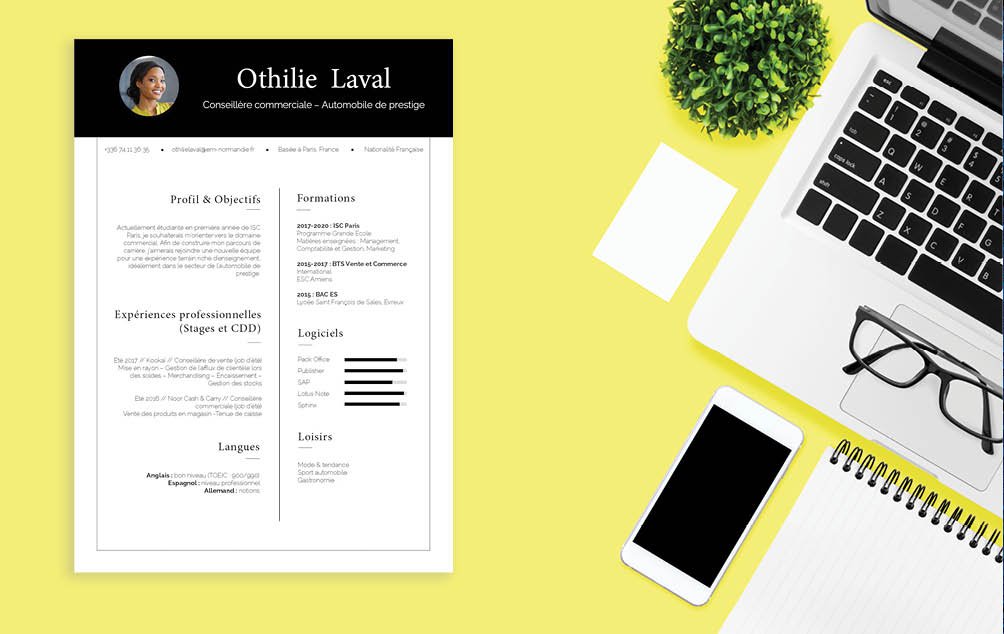
Which Skills Your Resume Would Benefit From
They are a key part of a job description, a LinkedIn profile and also a printed CV: Skills! But now you wonder which skills you should list in your application and from which ones you would benefit going forward? Check out the tips below…
What skills to put on a resume
Basically, there are two different types of skills – hard skills and soft skills. Hard skills are technical abilities you need to do a specific job and which are easy for an recruiter to recognize. Typical hard skills to list on a resume are:
- Languages
- Accounting
- Computer programming
- Planning / Event Planning
- A degree or certificate
On the other hand you have the soft skills, which are much harder to quantify. They are also known as ‘people skills’ and relate to the way you interact with people. See a list of skills which belong to your ‘emotional intelligence’:
- Ability to Work Under Pressure
- Decision Making
- Self-motivation
- Leadership
- Relating well with others

Which skills do you benefit from
Soft skills are relevant to you as a person. That means, they are often harder to show, learn and measure than hard skills. But that doesn’t mean they are less important. It is more the other way round. When an employer must choose between two applicants with identical technical skills, the candidate who already proven to work under tight deadlines has a better chance.
Identify the skills you have acquired or demonstrated through your jobs, campus activities, academic projects and hobbies. You have experience in leading your sports team? Great; that is the perfect start proving you are a good team player. Then it is easy to build some technical skills on top – they are easier to train and measure, for example in form of a certificate.
Which skills will be relevant in future
So, it should be clear by now that soft skills are very important of being a part in your resume. Okay, but probably you are already aware that the world is changing dramatically while we speak. And skills are changing as well.
Things like data analysis, problem solving skills, and even more specific skills – like having familiarity with WordPress – are going to keep cropping up in job listings regardless of your path.
A lot of future jobs revolve around data. Even if you don’t plan to get a data analyst or web developer – it will be of benefit if you have at least a basic understanding of it. Even in jobs like customer support, you will be dealing with some data on a regular basis. Showing a future employer that you’ve used data to make decisions on your personal blog for example, can go a long way. Also a basic understanding of web development is useful to a variety of careers.
Find a list of skills which can get relevant to you in future and which are worth it to learn next:
- Data analysis
- Planning and organizational skills
- Research skills
- Project management
- Dealing with many different software, also photo editing
- User interface design
- Web architecture and web development
- Statistical analysis
- Content management system
- Search Engine Optimization (SEO)
 How can you gain more skills
How can you gain more skills
The good thing is: You probably already have tons of skills. And the best thing is: You can learn the others ones really quickly. What is your plan for next weekend? Have you considered to join a coding class? Or have you consider to read a book about product management while taking the public transport every morning?
There are several methods out there to gain more skills quickly. Simply google ‘Coding Bootcamp’ or sign up to Webinars which are available on the web for free. Enroll in online classes or simply ask a colleague who is a professional in coding to show you the basics for one week 10 minutes a day.
Once you know which in-demand skills you already have, you can figure out what to learn next to prepare yourself for the job market. But be aware that the job market changes fast. What you learned six months ago might not apply next month. Be flexible and adapt continuously.
Give yourself some credit
No matter what new things you learn – Make sure to call them out when you’re applying. Be proud of the skills that you have and see each and every one as a way to progress in your career.
